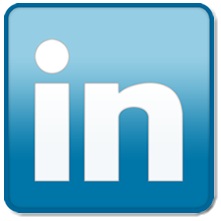Job-searching on LinkedIn: Why you should consider it

If you're looking for a new job (or for a job, period), you may want to consider searching LinkedIn -- especially if you have a LinkedIn profile with a number of connections already established. Why? Because LinkedIn is helping to bridge the gap between what you know and who you know. Allow me elaborate.
We all have our individual paths that we've taken to end up where we are job-wise: for some, it's what you know that ultimately lands you a job; for others (like me), it's about who you know that ultimately lands you a job. Naturally, in both cases, having the know-how to do a job is required, but the latter is almost like a back door to the traditional avenue of finding a job. Quite awesomely, LinkedIn is carving a new path by marrying the two together and, based on what you're searching for, showing you people who can introduce you to job posters!
For example, I performed a search for "writing" and set it to return results from within a 30-mile radius of my zip code. Lo and behold, as I started to scroll down through the results, I noticed something that literally put a smile on my face:
See where it says "# connections can refer you to the job poster"? That, my friends, is absolutely priceless functionality that LinkedIn has built into its platform and I applaud them for it. This functionality alone basically allows you to ask your connections if they know anyone who is hiring for whatever field you're interested in, without having to actually ask them. From there, if you find a position you're interested in and see that you can reach out to a connection of yours to personally introduce/recommend you, then you can do just that.
At this point, I believe such functionality should be automatically built into every single social resume/career/job site/platform from here on out, no question. Of course, there are some points of consideration you should realize before investing any stock into the success of this.
[Hot on ZDNet: Make money online, part 1: Introduction to Google AdSense]
For instance, you may have LinkedIn connections up the wazoo comprised of people you don't know, so if their names pop up as being able to introduce you to a job poster, you may be just as well off approaching the job poster themselves. Then again, that connection you don't know may be someone who added you previously because they're a fan of your work or something of that nature. In those cases, they would probably be happy to recommend you (and quite enthusiastically at that). In the end, it's a judgment call.
Additionally, if you're connected with someone on LinkedIn that you know in-person, it might still behoove you to ask them if they know anyone who is hiring. The functionality I've written about above is solely dependent upon companies/individuals who are posting LinkedIn job ads in the first place.
Put simply, my personal experience has 100% proven to me that the odds of job acquisition are stacked more in your favor by knowing people who can get you in the door. Of course, in some cases, that's simply not enough, which is why you still have to have the know-how in the first place. For instance, companies like Microsoft have some fairly rigorous hiring rituals that all but eliminate the hiring of individuals based on someone they know.
So, with that said, head on over to LinkedIn and start job-searching! If you don't have a LinkedIn profile, sign up for one (they're free), take the time to craft a detailed portfolio (use mine as an example, if you'd like), then start searching for friends, family, coworkers, etc. to add. Who knows, you may just end up owing the next step in your career to one simple implementation on LinkedIn. Best of luck to you in your job-searching endeavors!
Related Articles:
- Make money online: Introduction
- Google AdSense: The top 5 optimization tips straight from Google
- How to Become a Search Ninja: Harnessing the True Power of Google - Part 1
- The missing guide to Twitter: Unorthodox ideas for exceptional people like you!
- Google to spend 3 years on research to benefit the Internet advertising industry
